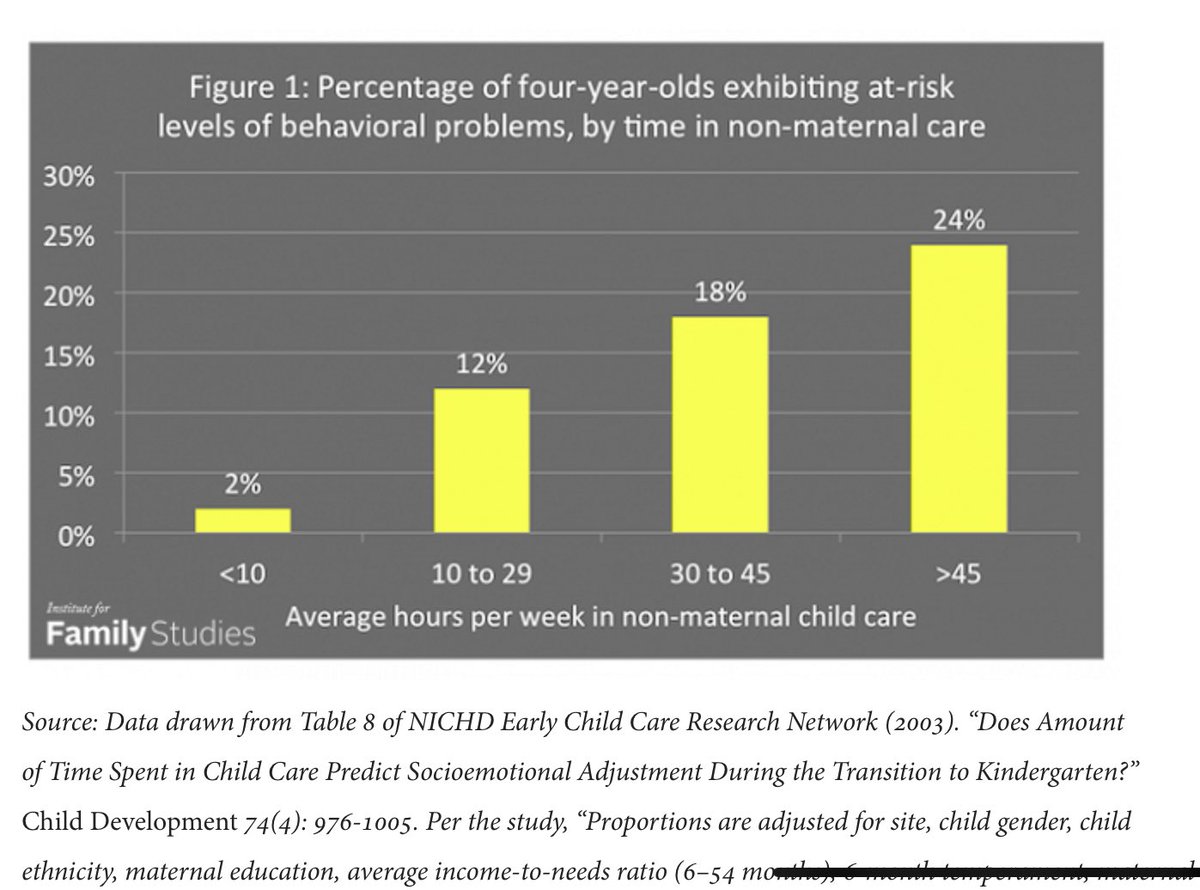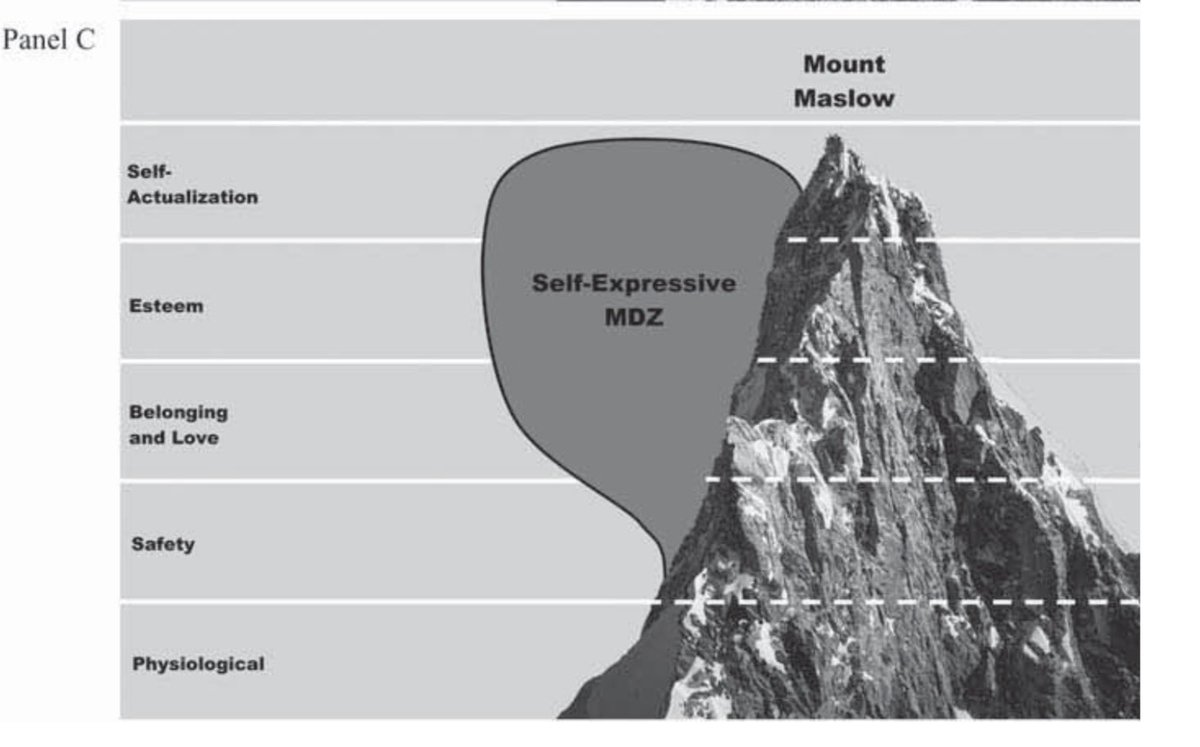
1. Is “Universal Child Care” a good idea? Consider Quebec, which “launched its universal child care program in 1997.”
Evaluations found “2- to 4-year-old children who had been in child care showed significant ⬆️ in anxiety, aggression, & hyperactivity.”
ifstudies.org/blog/universal…
Evaluations found “2- to 4-year-old children who had been in child care showed significant ⬆️ in anxiety, aggression, & hyperactivity.”
ifstudies.org/blog/universal…
2. “As children grew older, these negative outcomes did not dissipate: among 5- to 9-year-olds, the social-emotional problems not only persisted, but in some cases increased, particularly for boys with the most elevated behavioral problems.” economics.mit.edu/files/3103
3. “Follow-up studies conducted 20 years after the program’s inception further revealed a subsequent ‘sharp and contemporaneous increase in criminal behavior’ across Quebec, as the rate of crime conviction jumped 22 percent.”
4. South of the Border, in the US, similar findings in a major NICHD study:
“By age four-and-a-half, children who spent 30+ hours per week in child care had worse outcomes in social competence, behavior problems & greater conflict w adults—at rates 3 times higher than peers.”
“By age four-and-a-half, children who spent 30+ hours per week in child care had worse outcomes in social competence, behavior problems & greater conflict w adults—at rates 3 times higher than peers.”

5. Given this research, and polls indicating most parents would prefer having young kids cared at home, what is to be done? @kbstevens @AEI and Dr. Jenet Erickson @BYUWheatley argue for restructuring the CTC to maximize parents‘ financial options.
• • •
Missing some Tweet in this thread? You can try to
force a refresh



